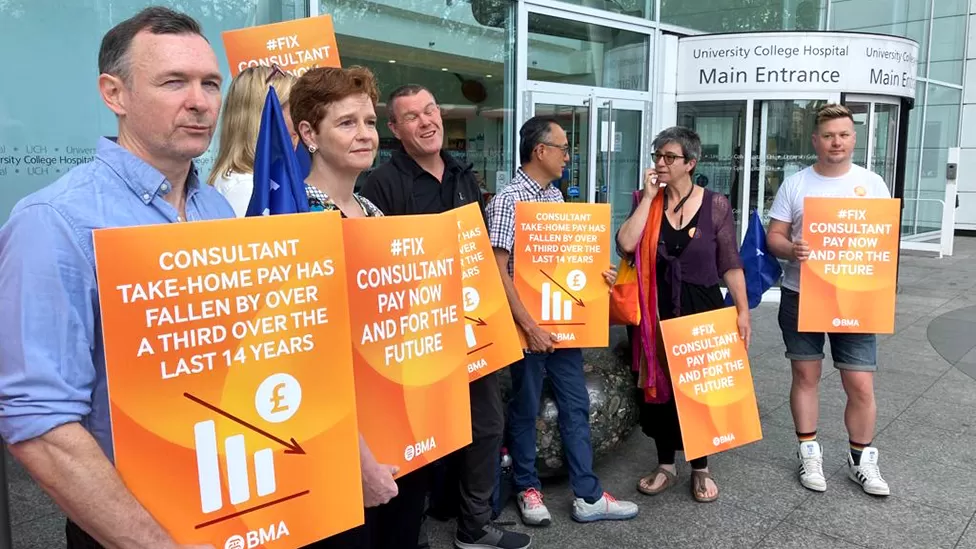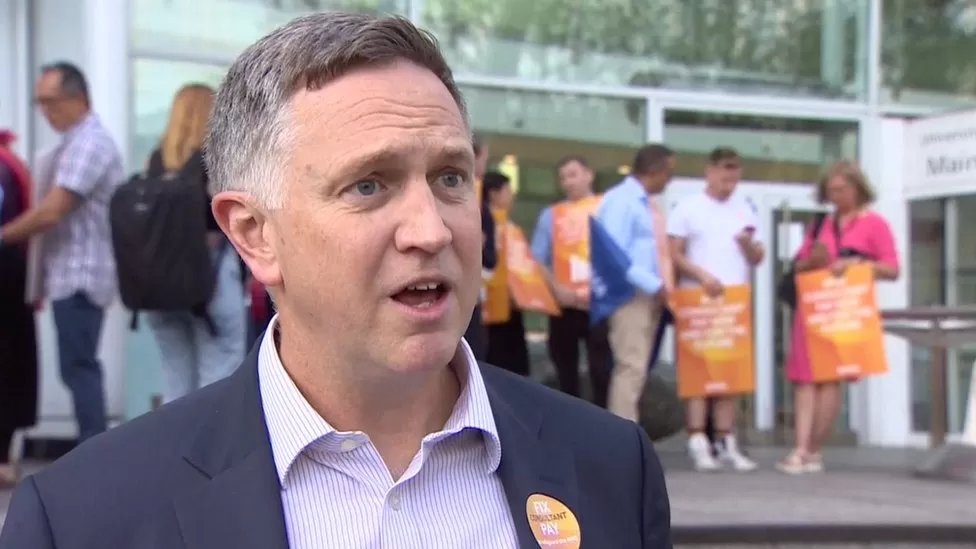Senior doctors stage first strike in a decade

There will be severe disruption to the NHS as a result of a 48-hour strike by senior hospital doctors in England.
In a dispute over pay, thousands of consultants walked out at 7:00 BST.
This is the first strike by consultants since 2012.
Emergency care and a small amount of routine work will be provided on Christmas Day.
Earlier this week, junior doctors ended a five-day walkout.
Because of the timing of the industrial action, NHS England claims the senior-doctor walkout will have the most severe impact of any strike action this year.
Appointments have been postponed for thousands of people.
In addition, consultants will no longer supervise junior doctors’ work and won’t see many patients.
Hospital chief executive Nick Hulme says 50% of doctors in Ipswich and Colchester are striking.
When an anaesthetic consultant didn’t show up for work, for example, the whole list of patients had to be cancelled, he told BBC Radio 4.
As a result, you are potentially left with a whole team of redundant individuals for the entire day.
Despite being “significantly better paid than most on the surface,” Mr. Hulme said staff felt they had been “left behind” in pay, despite the fact that the public support may not be there for them.
Dr Vishal Sharma, chair of the British Medical Association’s consultants’ committee, said members were “angry” and at “rock bottom” because their pay has lagged behind inflation for years.
In this government, we are undervalued and overworked. Patients suffer because of this government’s failures.”
As a consultant in emergency medicine, its deputy chair, Dr Simon Walsh, went on strike knowing the strike would harm patients. “We have a full emergency department so patients who have an emergency will receive the same care as usual…It’s a really difficult step to take industrial action, especially when it impacts people who are planning elective operations and appointments today.
Taking this step is crucial to protecting the NHS, preventing the workforce from eroding.”

Health Secretary Steve Barclay, however, called for an end to the dispute.
In response, he said the government has increased the amount that can be paid directly into pension pots tax-free, as well as accepting the recommendations of the independent pay review body and giving consultants a 6% pay rise.
“Now is the time to put patients first,” he pointed out, stressing that it was “the last offer” of the government.
What do patients need to know?
In case of an emergency, people should call 999, and for routine medical concerns, they should use NHS 111 online.
The usual access to GP services and pharmacies is also available.
It is still recommended that those not notified of the postponement attend their appointments as usual.
How much do consultants get paid?
It takes, on average, 19 years in the job to reach that salary, which starts at £93,666 for an entry level consultant – with the most experienced consultants making over £126,000 per year.
The average NHS consultant earns approximately 30% more than their stated salary – about half of that comes from working additional hours, and the rest comes from other allowances, including a bonus system known as Clinical Excellence Awards.
It is also possible to pay them additional money for private work – but not all of them do.
Has pay fallen over time?
The scale of pay cuts varies depending on the measure used.
RPI, the BMA’s measure of inflation, shows a 27% decline in pay since 2008.
The BMA reports that the shortfall in take-home pay over this period is 35% after adjusting for tax and pension changes.
Using other measures of inflation, the Institute for Fiscal Studies finds the fall to have been around 17% since 2010.
